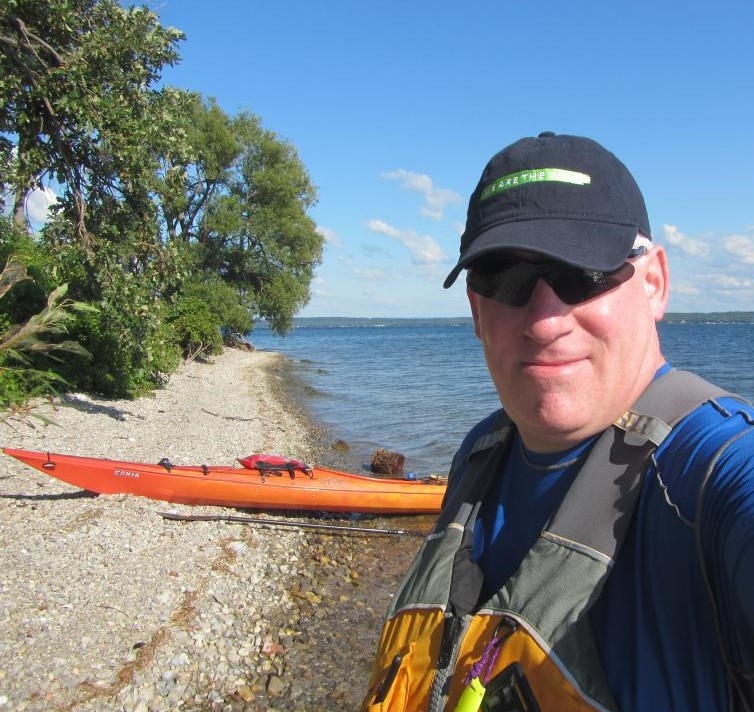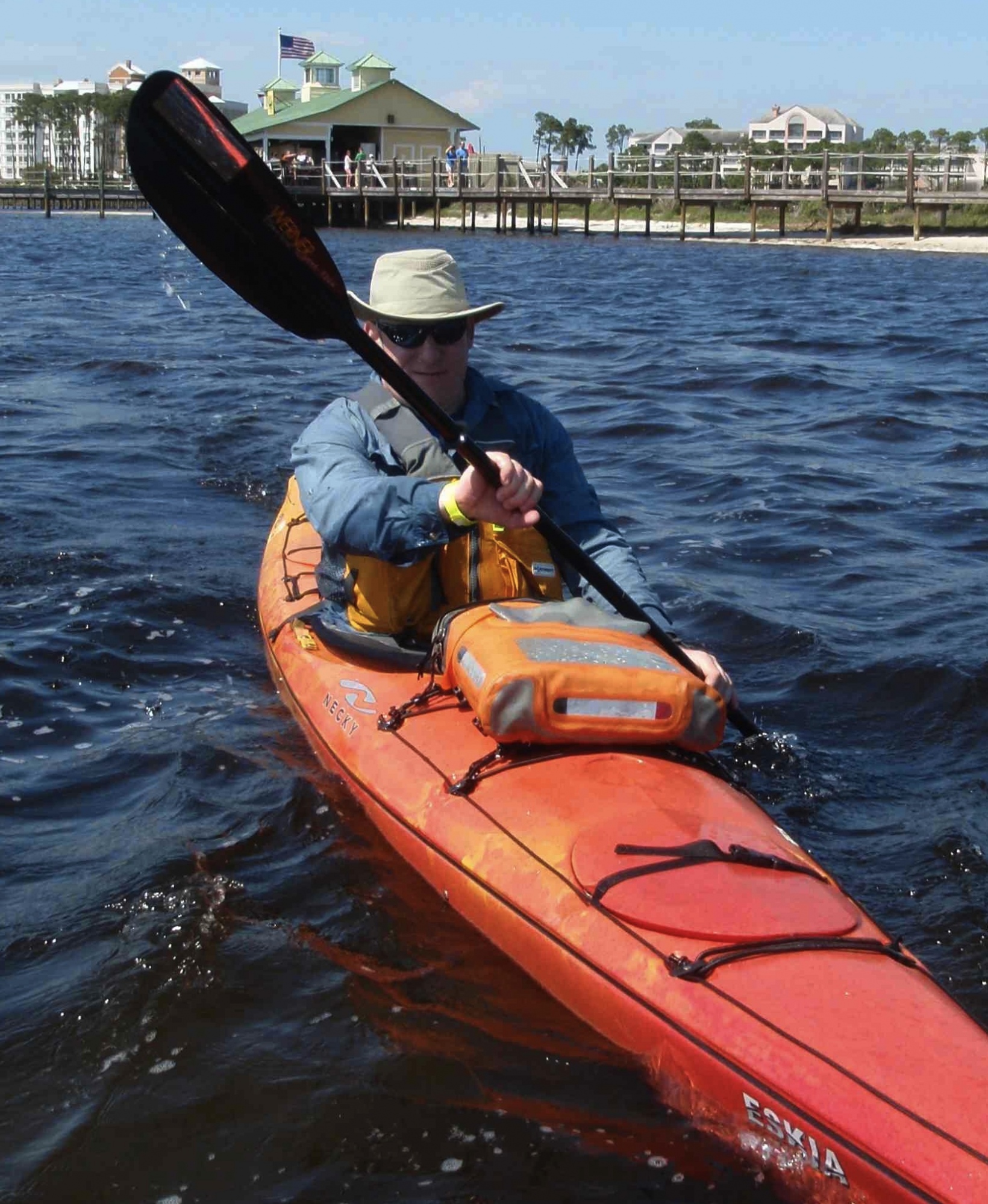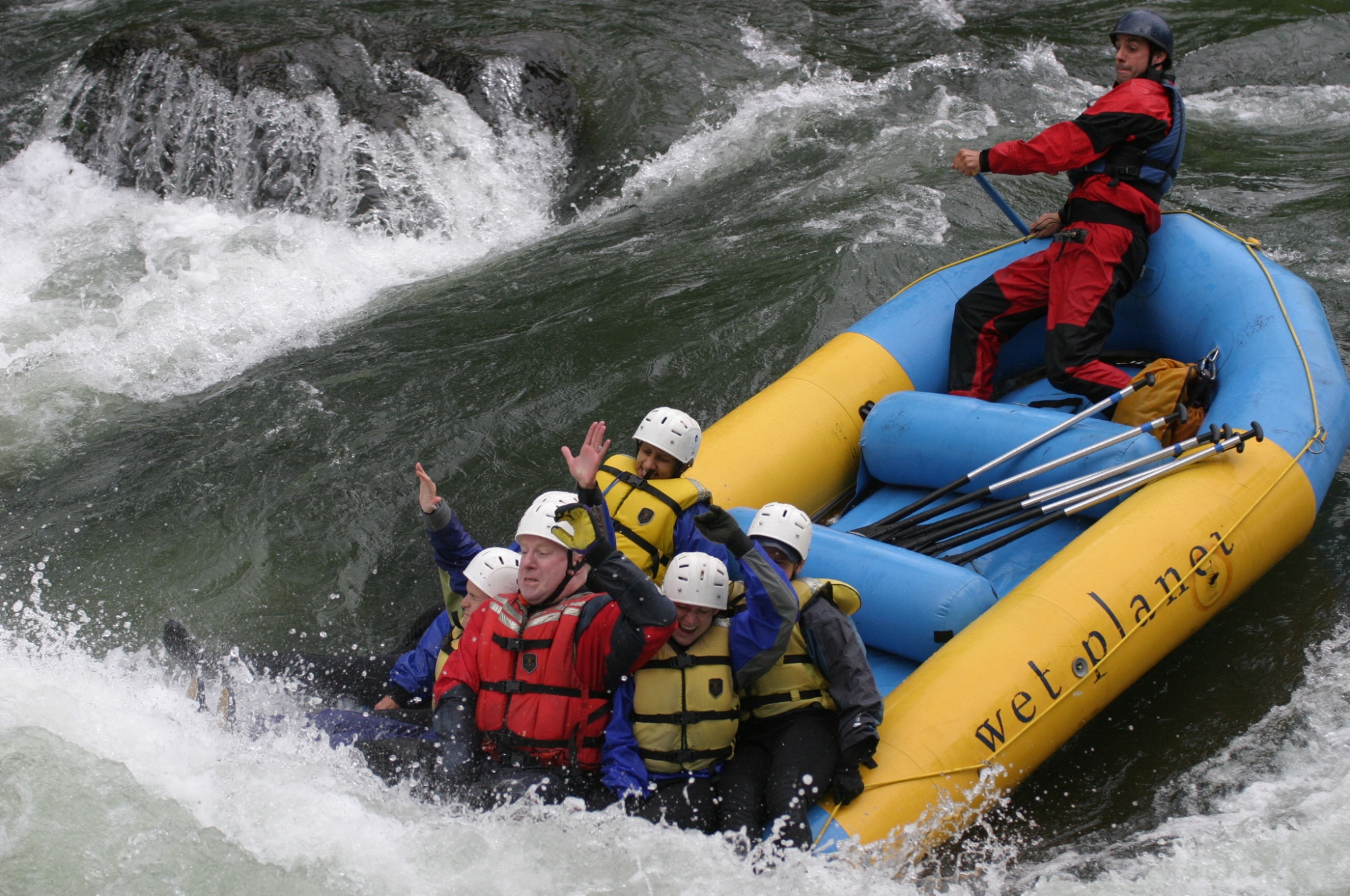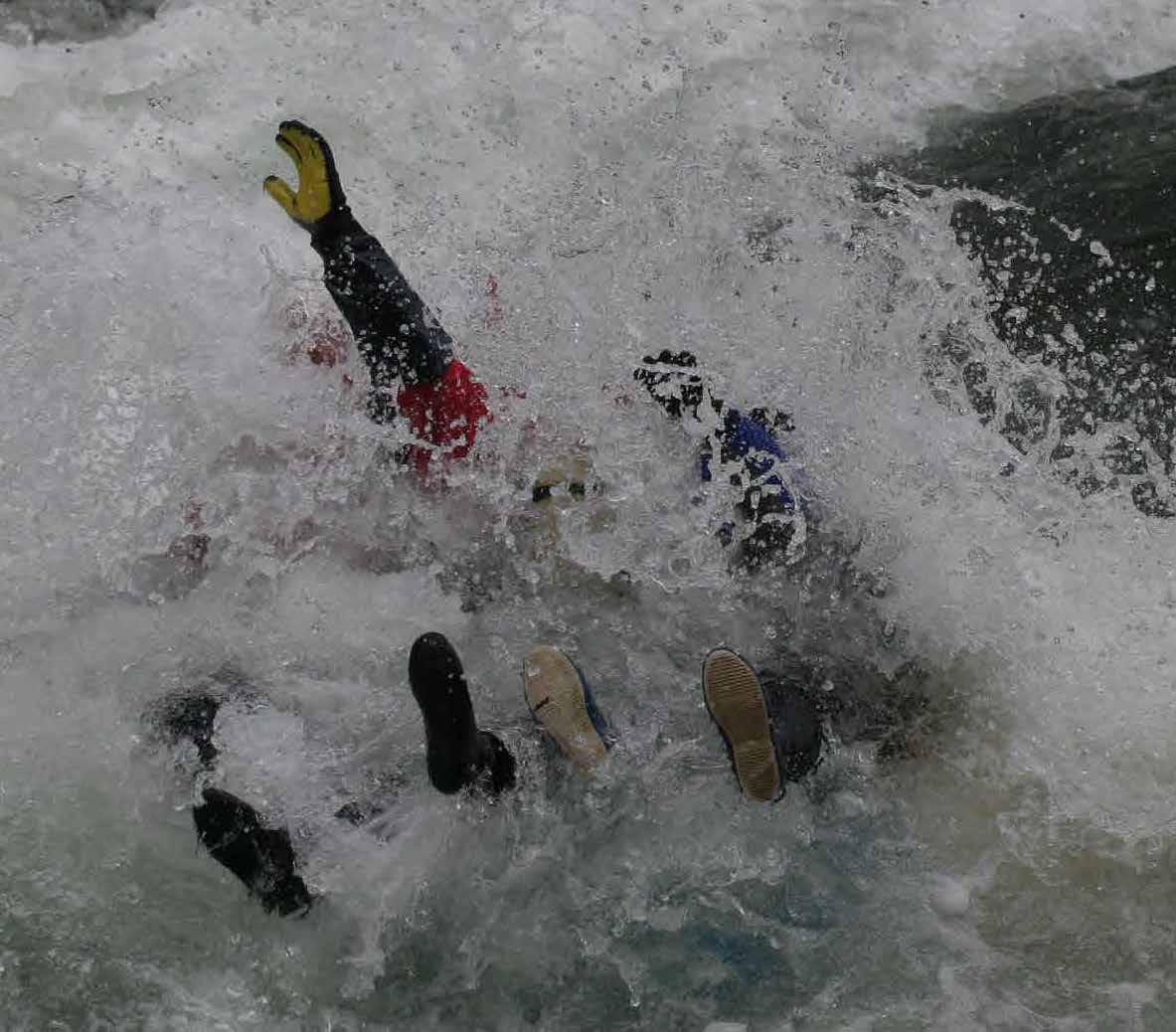MEMBERS IN MOTION: PAUL SANFORD

Paul Sanford
National Director of Recreation Policy, The Wilderness Society
AORE Member (6 years), Access & Permitting Committee Member (6 years), Board member (2 years)
When did you first fall in love with nature/why?
I have always enjoyed being outside. However, my love for wild places did not emerge until around my 30th birthday. In the early 90s, I took up day hiking and then worked my way up to backpacking. After a few shorter trips, I did an epic backpacking trip in Kings Canyon and Sequoia National Parks in California in 1994. To this day, I am convinced that my hiking companion was part bighorn sheep. At 10,000 feet, it was all I could do to keep up with him. However, once I adapted to the elevation, I realized that I was incredibly fortunate to be able to visit these beautiful places and enjoy these spectacular vistas free from roads, street lights, and power lines. At one point, sitting next to the trail and looking at the Sierra Crest, I was overcome with a deep sense of peace and contentment. That feeling convinced me that people have a connection to nature that is deeply rooted in the oldest parts of our brains. Urban migrations and the flood of technology may be preventing many of us from exploring this connection. However, that connection is there. It is up to us as outdoor leaders and advocates to encourage people to explore this connection, and to help them explore it if they ask for it. Later in the 1990s, I tried paddling, and really found my home. I love being on the water in a canoe or a kayak. I started out in whitewater, transitioned to coastal kayaking, and am now trying to redevelop my whitewater skills.
Why do you love the wilderness today?
I work in a fast-paced, high stress environment in which a lot of things happen that don’t make sense. Being in wilderness brings me back to earth and grounds me. Wilderness is vitally important to humankind. It provides the opportunity to connect with a deeper part of ourselves. It also reminds us to be humble, and remember that just because we have the ability to develop the entire planet doesn’t mean we should. My wilderness of choice is a river. Floating in a flowing river, either in the water or in a boat, helps to wash away the insanity of the world and restores some hope for the future. Rivers are resilient, and resilience is a quality that will be essential to humankind as we adapt to a changing climate. Most of all, being on the river is just plain fun. We all need to make sure we have enough fun in our lives. Nobody is going to do this for us. We have to do it ourselves.
How did you first become involved with the association? Why did you decide to join AORE?
I initially connected with AORE in order to recruit grass roots advocates for the Wilderness Society's campaign to improve the outfitter-guide permitting systems of the federal land management agencies. I joined AORE so that I could get involved in the Access Committee and pull the committee into some of the work I was doing.
AORE:
What is the part of the annual conference that you enjoy the most? What offerings / benefits do you most value / use while attending this event?
The Banquets are always a blast. Beyond that, I enjoy spending time with Association members and learning about the work they are doing to get more people outdoors. I also learn a lot during the educational sessions.
Describe your favorite memory from past annual conferences.
I enjoyed the pre-conference work sessions when I was a Board member. They were tiring, but I felt like we got a lot of work done and did some good for the association.
Why do you think people should invest in attending the annual conference?
The peer-to-peer learning opportunities are first rate. It's not just the educational sessions. It is also the opportunity to interact with a large number of their peers in an unstructured setting. I come away with so many ideas and opportunities after the conference. It is a high point of my year.
Which one of AORE's four focus areas (Networking, Advocacy, Career Advancement, Professional Development) is the most important to you and why? Which member benefit do you use the most and why?
Advocacy. I use the networking opportunities most of all. They help make me more effective in my advocacy work. And they are a lot of fun.
 ON VOLUNTEERING:
ON VOLUNTEERING:
What made you volunteer in the first place? What expertise, strengths, perspectives, and talents did you bring to your volunteer work?
Volunteering initially enabled me to activate the association on an important public policy issue that I am working on in my own job -- guided recreational access to federal lands and waters. I chose to get more involved because I enjoy working with AORE members to make the association strong. Nonprofit management experience. board of director experience, skills as a public policy advocate and attorney, commitment to trying to develop a strong association.
What keeps you wanting to come back and volunteer?
I am a continuing volunteer. Volunteering helps me achieve some of the goals I have in my own job (to expand opportunities for outdoor leaders to take people outdoors). It also allows me to help the association thrive and grow. Finally, volunteering gives me a chance to work with great people, and to continue my own professional growth and development.
What personal / professional benefits have you experienced through volunteering?
AORE'S support has significantly strengthened my own organization's advocacy work on guided recreational access to federal lands and waters. Volunteering has also improved my conflict management skills and made me a better advocate. Finally, I have developed many deep friendships during my time volunteering with AORE.
Why would you suggest that other members consider becoming a volunteer?
Volunteering with AORE is a great professional development opportunity. You will develop more skills at a whole range of things that will help you in both your personal and professional life. And you will enjoy it. AORE is full of great people who are a pleasure to work with. You won't really experience that or get to know people sitting on the sidelines.Volunteering with AORE will take as much time as you choose to give it. My advice to people considering volunteering is that you think about and set boundaries for yourself so that you do not burn out. That may mean you do less in the near term, but it will enable you to do it longer. Long term sustainability is good for you and good for AORE.
PAYING IT FORWARD:
Looking back, what is one thing that you wish you'd known when you first started out in this industry?
I wish I had known that the most essential skill in any job is the ability to build relationships with people. That is the single best indicator of whether you will be successful in your work. Can you build positive relationships with people that allow you to take advantage of common interests? If so, opportunities await you.
What is some advice that you would give to students and emerging professionals?
In all things, hustle (even if you have to force yourself). Be fearless or learn to act fearless in developing relationships with other people and organizations. Your ability to do so will determine your level of success. Treat people well even when they aren't doing the same. The respect you show will come back to you somewhere and some time. Develop conflict management skills early in your career so you are ready for the harder stuff later on when the stakes are higher. Be persistent. Take notes and remember to follow up. Don't let things wither on the vine from neglect. Finally, remember to keep doing the things that nourish your soul. You have to make time for them. Nobody will do it for you.
Beyond an AORE membership, what are some other industry tools / resources that you'd recommend?
Training offered by The Management Center is top-notch. It is focused on nonprofit management but can help people in any field. http://www.managementcenter.org The Wilderness Society will be publishing a curriculum on public lands management. The curriculum will provide AORE members with the tools they need to educate students on public lands in the United States. This can contribute significantly to the activities being offered by AORE member programs and help these programs develop the next generation of public lands stewards.
Check out Paul's advocacy work with newly introduced legislation in the Senate called the SOAR Act, which will increase access to public lands for all and improve the ability of AORE members to plan and execute their programs. [Read More]